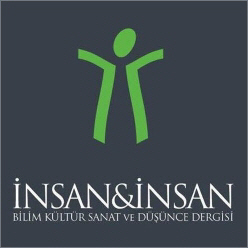Özet: Toplumu etkileyen ve toplumdan etkilenen sinema, sosyal yaşamın gerçekliğini farklı açılardan ele alırken farklı disiplinler içerisinde yeniden hayat bulmaktadır. Bu disiplinlerden biri olan psikoloji alanında sinema yapıtları terapötik bir öğe olarak kullanılabilmektedir. Nitekim, bu çalışmada toplumu etkileyip, aynı zamanda toplumdan etkilendiği düşünülen sinema yapıtlarından “Issız Adam” filminin, terapötik bir öğe olarak Gerçeklik terapisi kavramlarıyla ilişkilendirilerek farklı bir bakış açısı ile sunulması amaçlanmıştır. Bu amaçla, filmin esas kahramanlarından Alper ve Ada’nın temel ihtiyaçları olan sevgi ve ait olma, özgürlük, eğlence, güç ve hayatta kalma ihtiyaçlarını doyurma yollarında aldıkları sorumluluk dâhilindeki seçimleri ele alınmıştır. Ayrıca bu seçimlerin onların kalite dünyalarında nasıl anlam bulduğu ve onları pişmanlık yaratan ya da doyum sağlayan bir yaşama nasıl götürdüğü Gerçeklik terapisi açısından ortaya konulmuştur. Sonuç olarak, bu çalışmanın, Gerçeklik terapisi ile ilgili kuramsal bilgiyi destekleyip bu yaklaşımın kavramlarının öğretimine örnek oluşturarak, psikolojik danışman eğitiminde kullanılmak üzere akademisyenlere ve öğrencilere kaynak oluşturacağı düşünülmektedir.
Anahtar kelimeler: Gerçeklik terapisi, Seçim kuramı, Temel ihtiyaçlar, Kalite dünyası, Sorumluluk, Başarılı / Başarısız kimlik
The Investigation of “Issız Adam” Movie in Terms of the Reality Therapy
Abstract: Cinema both affects society and is affected by society. The cinema exploring reality of social life in different points of view appears in different discipline. Cinema is used as a therapeutic component in the discipline of psychology, too. The aim of this study is to introduce the ‘Issız Adam’ movie in terms of the Reality Therapy. Thus, the selections of Alper and Ada, who are the actor and actress of the film, were analyzed with reference to how they fulfill the need of love and belonging, survivor, power, freedom, fun. Similarly, it was shown that how Alper and Ada’s selections make sense in their quality world and whether they feel sorrow or satisfaction in the context of Reality Therapy. Consequently, this study supports the theoretical knowledge about the Reality therapy and can be a model in teaching the concepts of this approach; so it is considered that the study will become a resource for academicians and students in the training of psychological counselors.
Keywords: Reality therapy, Choice theory, Basic needs, Quality world, Responsibility, Success / Failure identity
